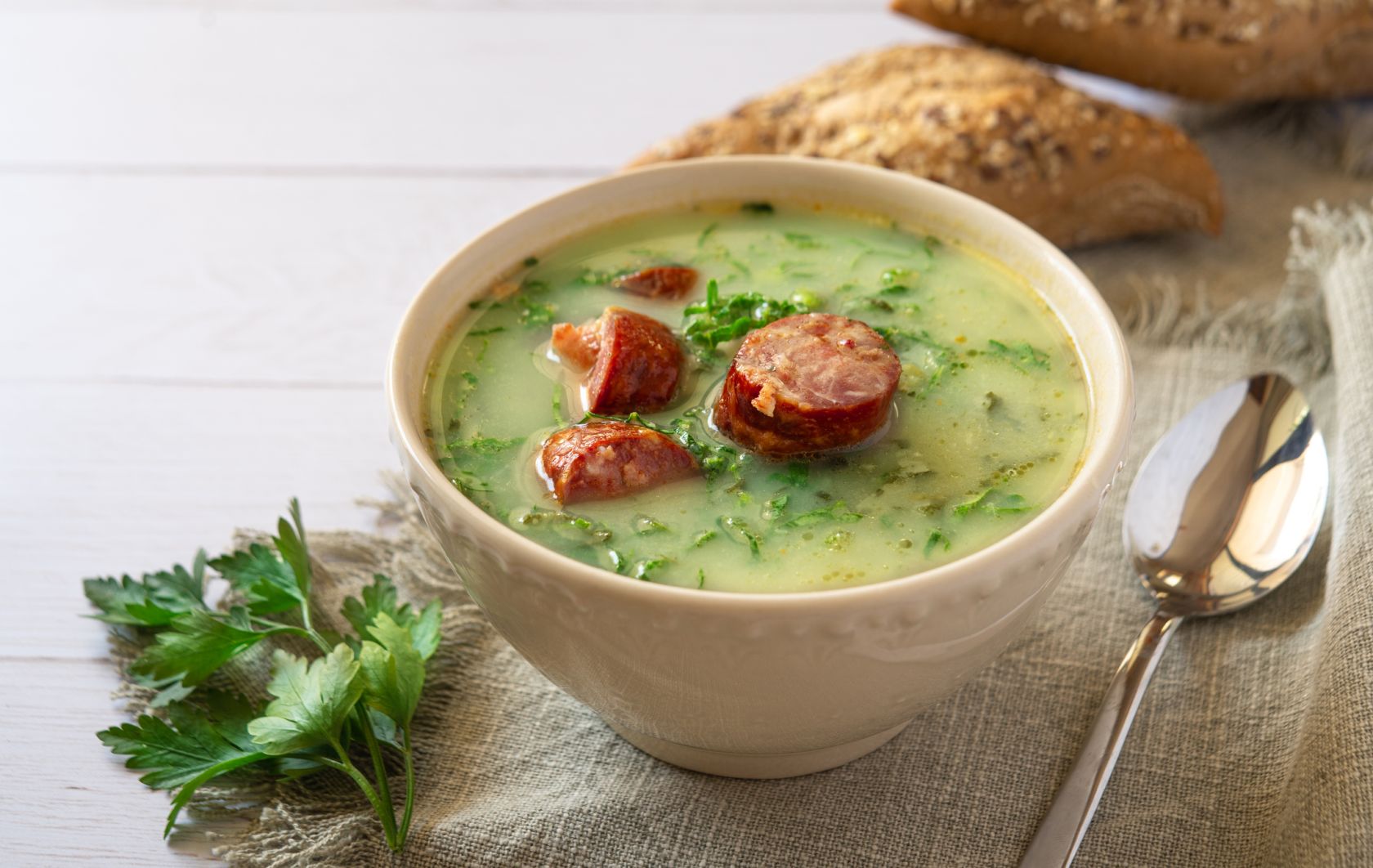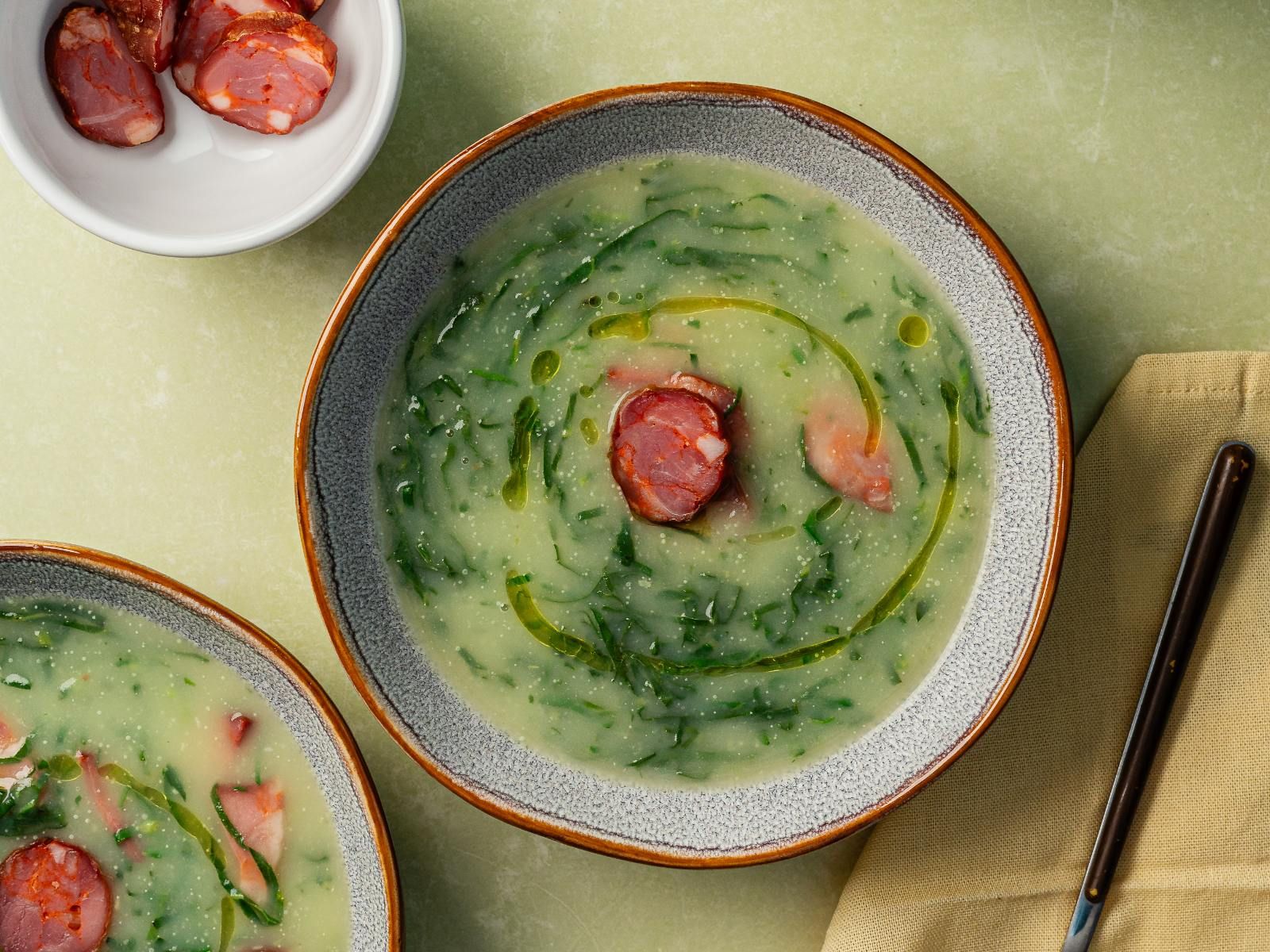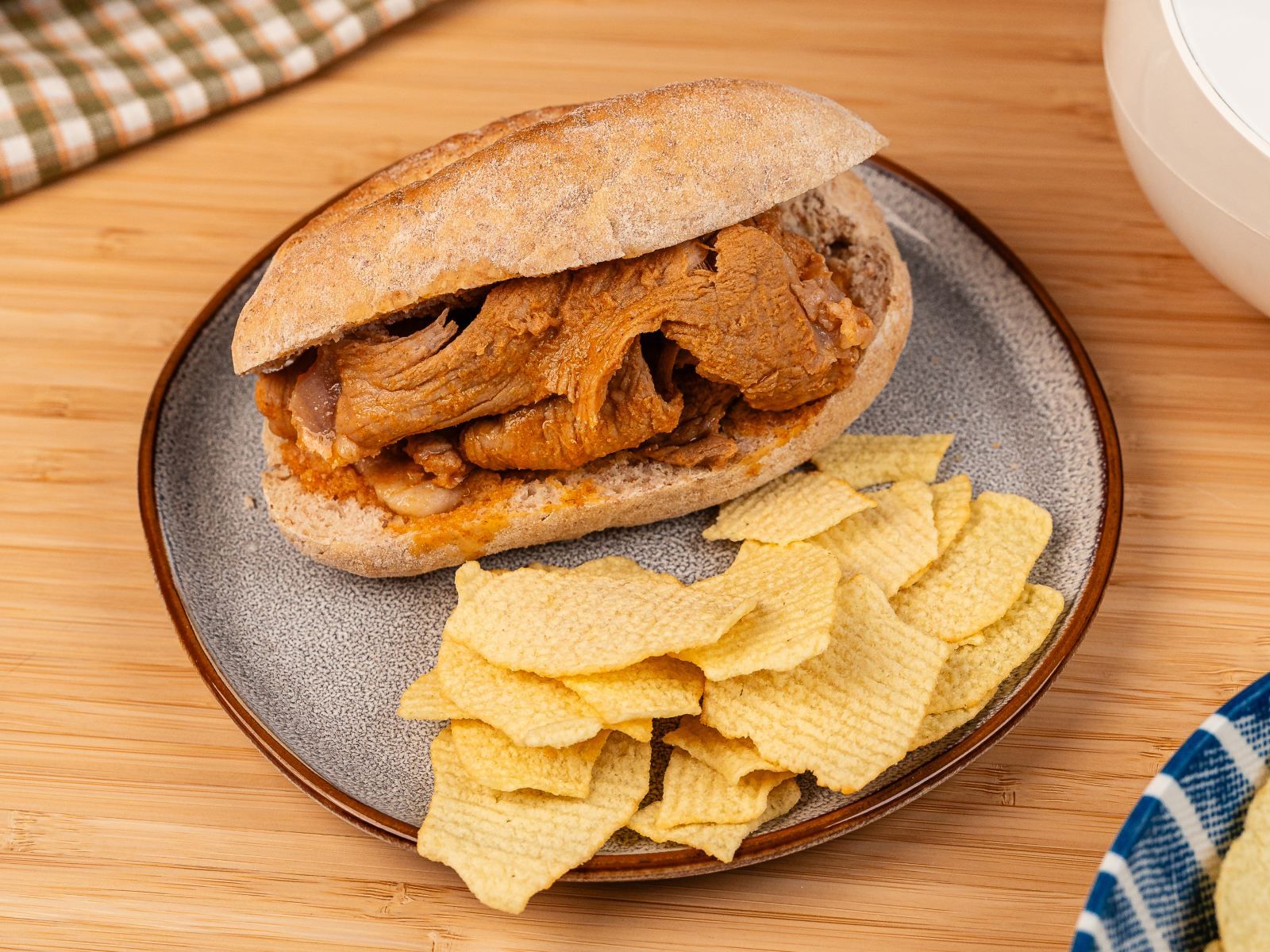Caldo Verde
This is a traditional Portuguese potato and kale soup with sausage, also known as green soup or green broth. Considered by many to be Portugal’s national dish, Caldo Verde can be found all over the country.
The best Caldo Verde is cooked long enough for the potatoes to almost completely break down, thickening the soup into a creamy broth.
If you don't like kale, almost any dark leafy green (like collards or turnip greens) works well in this recipe.

Ingredients
• 4 tablespoons olive oil, divided
• 1 medium onion, minced
• 2 cloves garlic, minced
• 6 medium potatoes, peeled and thinly sliced
• 300g linguiça sausage, thinly sliced
• 1 bunch kale
• salt and freshly ground black pepper

Directions
1. Warm 2 tablespoons of olive oil in a large pot
2. Add the onions, season with salt, and cook until translucent, 5 to 7 minutes. Stir in the garlic and cook for 2 minutes more
3. Add the potatoes and cook, stirring constantly, for 3 minutes. Pour in enough water to cover and bring to a boil; simmer gently until potatoes are very tender, about 20 minutes
4. Add the kale and continue cooking until the potato slices have completely broken down (you can press them with a spoon or potato masher for an even thicker texture), and wait until the soup has thickened to a creamy consistency
5. Meanwhile, cook the sausage with the remaining olive oil in a large skillet over medium-low heat until it has released most of its fat, for about 10 minutes. Drain.
6. Stir the sausage into the soup, season with salt and pepper
7. Let the soup rest for 5–10 minutes before serving to allow the flavours to blend. Serve hot, drizzled with a little olive oil. Enjoy with a thick slice of crusty bread.
Bifana
A 'bifana' is a well-known Portuguese sandwich, and there are several different regional versions.
It’s a simple, rustic sandwich made of thinly sliced pork, marinated in a flavourful mixture of wine, paprika, and garlic, then simmered to perfection and served in a soft Portuguese bun.
Several cafés in Vendas Novas claim to be the original creators, and there are many styles available. The original bifana came from the Alentejo, where it was created as a quick, affordable meal for the working class. In the north of the country, people often add beer and passata to the sauce, while in the Algarve, they tend to stick to white wine. There are also variations in how the meat is prepared. Some use a single tenderised pork cutlet, while others cut the pork into small pieces or even shred it.

Ingredients
• 500g pork loin
• 3 cloves of garlic, minced
• 2 bay leaves, broken in half
• 1 1/2 cup dry white wine
• 1 teaspoon sweet paprika
• Salt and pepper, to taste
• 1 tablespoon white wine vinegar (add just before serving)
• 4 Portuguese bread rolls (papo-seco or another soft roll)
• Piri-piri sauce
• Yellow mustard (optional, for serving)
Directions
1. Slice the pork into thin slices
2. In a bowl, mix the garlic, bay leaves, white wine, paprika, salt and pepper
3. Add the pork slices to the marinade and let them soak for at least 2 hours for the best results
4. Heat a pan and add the marinated pork (with some of the marinade). Cook gently - being careful not to let it burn.
5. Fry the pork on both sides until golden brown and cooked through
6. Just before serving, stir in the white wine vinegar
7. To serve, slice a roll in half, add a spoonful of sauce to the bottom, then add some of the pork
8. Serve with piri-piri sauce and mustard, if desired














